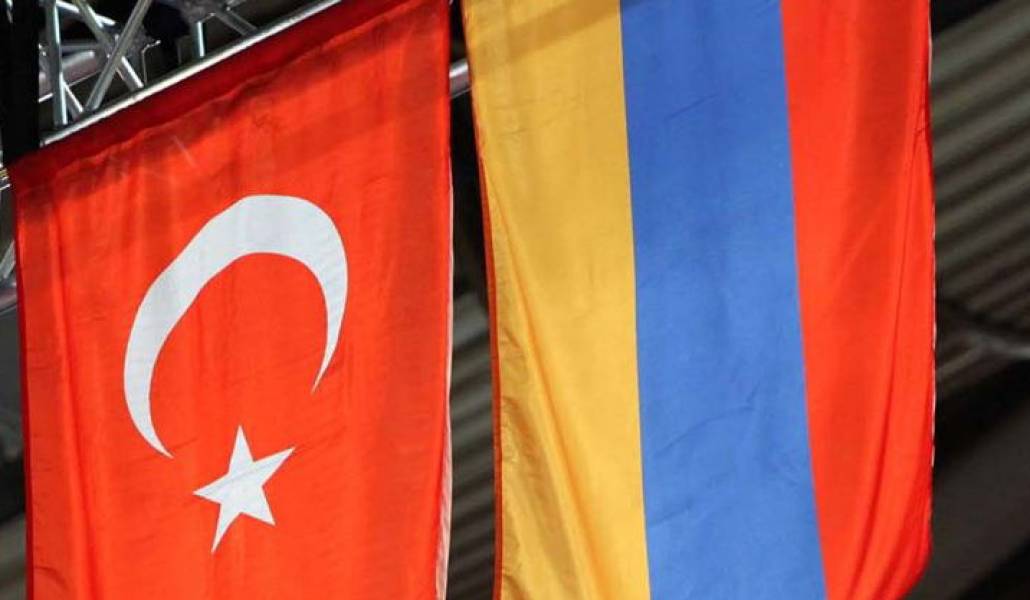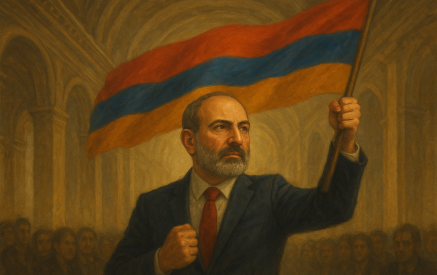by Stepan Piligian
The game is on with our duplicitous neighbors once again in exploring diplomatic relations. Aside from rumors emanating from the “palace intrigue” associated with Pashinyan’s vague public comments, the general citizenry has little information about the approach, agenda and most importantly, the issues that are on or off the table. Armenians are not naïve especially when it comes to matters involving Turkey. Given the incredibly long list of serious issues separating our peoples, most Armenians are anxiously waiting to know, “What is the price?” Turkey has everything to gain and very little to lose in this engagement. Armenia is in the unfortunate position of gaining little and the possibility of losing a great deal. Why?
Despite its current economic woes, Turkey is a strong country with friends in high places. Serious dialogue with Armenia would please their NATO allies and other western states that are looking for signs that Turkey is not further drifting from the western sphere. The elusive European Union (EU) membership hook has been tarnished, and NATO has its doubts, but the US will set the tone for both. Turkey still has many supporters in the State Department despite their treachery in Syria and irresponsible aggression in the region. Turkey has prospered by assuming the role as a buffer with Russia, enabling Turkey to skillfully play both sides only to be forgiven for the next round. Who else could purchase a missile defense system as a NATO member from the country that NATO views as its adversary? Establishing diplomatic relations with Armenia would help confirm Erdogan’s propaganda of an open-minded regional leader. There is just one problem for Turkey. They simply cannot resist their centuries-old obsession with extinguishing the torch of Armenian civilization. Their oppressive policies degenerated into genocide 100 years ago, and successors’ regimes have continued to invest millions in the coverup of the crime. The Turks are excellent negotiators…crafty as a fox but as trustworthy as a snake. Anyone who believes they are entering these discussions without “preconditions” hasn’t been paying attention. With the Turks, it is not a matter of if, but what and when. In its current state, Armenia has little choice but also little upside. We hear talk of the economic benefit, yet cheap Turkish goods flooding Armenian markets and pricing out domestic producers doesn’t sound very appealing. The arrangement would have to include structured protections that would ensure its mutual benefit…something that is doubtful given the relationship. Armenia needs stronger export capability in order to grow its economy. This requires investment to increase and create capability. I am not sure Turkish investors are in the national interests of Armenia. The West acts like a parent just wanting two siblings to get along. A superficial agreement that creates a pseudo path of reconciliation would be a tempting option for the EU and the US. Still, Armenia cannot afford to be the “bad guy” by refusing to engage in dialogue.
Read also
Despite the potholes that must be navigated, establishing relations is a good thing. The border should be open, if not for immediate economic benefit then at least to reduce tensions. Embassies should be opened so direct discussions can take place and not through third party filters. Aside from the emotional impact, this is not the main concern of Armenians. Most worry about what “preconditions” Turkey will introduce to force Armenia to accept and what price is Pashinyan willing to accept. This is not an ordinary relationship where the citizens entrust their government with the process and decisions. Turkey is a country (successor government) that committed genocide against the Armenians. This is a country that openly and illegally aided Azeris to destroy the Armenian population in Artsakh. This is a country that demands a “corridor” through the sovereign territory of Armenia and makes no effort to disguise their activity to connect the Turkic peoples of Asia at the expense of the Armenians. They not only deny the Genocide, but insist on the Republic of Armenia renouncing any territorial claims through reparations by accepting the Treaty of Kars (1921). In addition, the confidence of the citizens of Armenia and the diaspora in Prime Minister Pashinyan’s ability to resist Turkish demands has waned. With public rhetoric focused on “peace” and engaging our neighbors, there is growing concern about what is under consideration. Pashinyan knows that the Turks and their actions have more of a psychological impact on Armenian behavior than any other group on earth. Any of the aforementioned compromises or “preconditions” could have a fatal impact on the psyche of the already beleaguered people of Armenia and the diaspora. It is for this reason that the people have a right to know the boundaries of the Armenian position.
Many of us are wondering why the government of Armenia is even participating in this process. We need to appreciate the incredible pressure Armenia is under to participate. These issues are determined outside of Armenia. Each participant has its own special interests and attempts to use Armenia to promote that position. Russia sees a weakened Armenia as a more willing participant and one step closer to being a vassal state to a larger Russian sphere. The comments this week by Belarus President Alexander Lukashenko about unity with Russia offer a clear picture of intent. Turkey gets to play the benevolent regional partner that is willing to engage with smaller and weaker Armenia.
The EU, NATO and the US would be delighted to see relations established as the stability will further their interests. Armenia’s diplomatic corps is relatively inexperienced, which is a tenuous position when combined with the position power of Turkey. At face value, these discussions are about establishing diplomatic relations which essentially is defined as an open border and diplomatic channels. One risk for Turkey that is worth watching is the position of Azerbaijan. Turkey and Azerbaijan have long promoted the “one nation-two states” notion to describe their relations. Turkey has its own special interests, and many of them do not include Azerbaijan as an equal. Turkey publicly plays the co-religionist and common ethnicity card to rally the common citizens, but Turkey has a use for Azerbaijan as a conduit for Erdogan’s pan-Turkic vision. There are tolerance limits on the relationship of Azerbaijan and more powerful nations such as Russia and Turkey. Azerbaijan wants no part of any legitimizing of Armenia, but Turkey will consider the tradeoffs for their own interests.
In my view, there are two major issues that Armenians fear may be a negotiating item in this process. The first is renouncing any territorial claims on Turkey by formally accepting the Treaty of Kars that established the current borders. This treaty is controversial in that it was signed by parties not yet recognized by international law as the rightful representatives. The Bolsheviks were not yet the legitimate rulers of the Russian and Armenian States (1922), and the Grand National Assembly of Turkey did not declare the Republic of Turkey until 1923. Despite the legal questions, the current Republic of Armenia (ROA) has never formally accepted the Treaty which ceded Kars, Artie, Ardahan, Ararat and other areas to Turkey. Lurking in the foreground and on the minds of most Armenians is that the Treaty of Kars and territorial reparations for the Genocide are not compatible. The ROA formally accepting the treaty would strike a blow to territorial reparations. The other more current concern is the demand of the Turks for a “corridor” through Syunik from Nakhichevan to Azerbaijan (occupied Artsakh). Implicit in this issue is Armenia accepting the “territorial integrity” of Azerbaijan, which would run counter to the demand for Artsakh’s independence. As absurd as the “territorial integrity” is given that Azerbaijan ignores Armenia’s territorial integrity, this is a major concern.
Prime Minister Pashinyan has a responsibility to tell the citizens of Armenia that both these issues are red lines for Armenia and have no relevance to establishing diplomatic relations. Waiting for the Turks to bring the issues forward will only put Armenia further on the defensive. If “preconditions” are clearly not a part of this engagement, then defining what issues are off-limits would be a beneficial exercise. In the Zurich Protocols process that started in 2009, the same rhetoric was used as ground rules until the Turks, at the urging of Azerbaijan, decided to link the Artsakh issue to the establishing of relations with Turkey.
The effort eventually failed because the Turks could not resist the temptation to take advantage of the Armenians. It is appropriate to be cautious against a repeat in this round. In particular, the people of Armenia should know that their government is not considering discussion on two major issues that are intimately linked to our national identity. Vague discussions with hints of positions will not satisfy the alarms raised by formal discussions with those who have actively worked for our demise. Bitter enemies can and must talk, but protecting self interests must be defined and communicated to the constituencies. We all have wants and needs. Nations are no different. Before we commit to a transaction, we should ask ourselves: do we need this? Can we afford this item? So we proceed by asking for the price. Is the price too high for the return? These are the questions that the Armenian people are asking. Prime Minister Pashinyan, they deserve an answer before the inevitable “preconditions” emerge.

























































